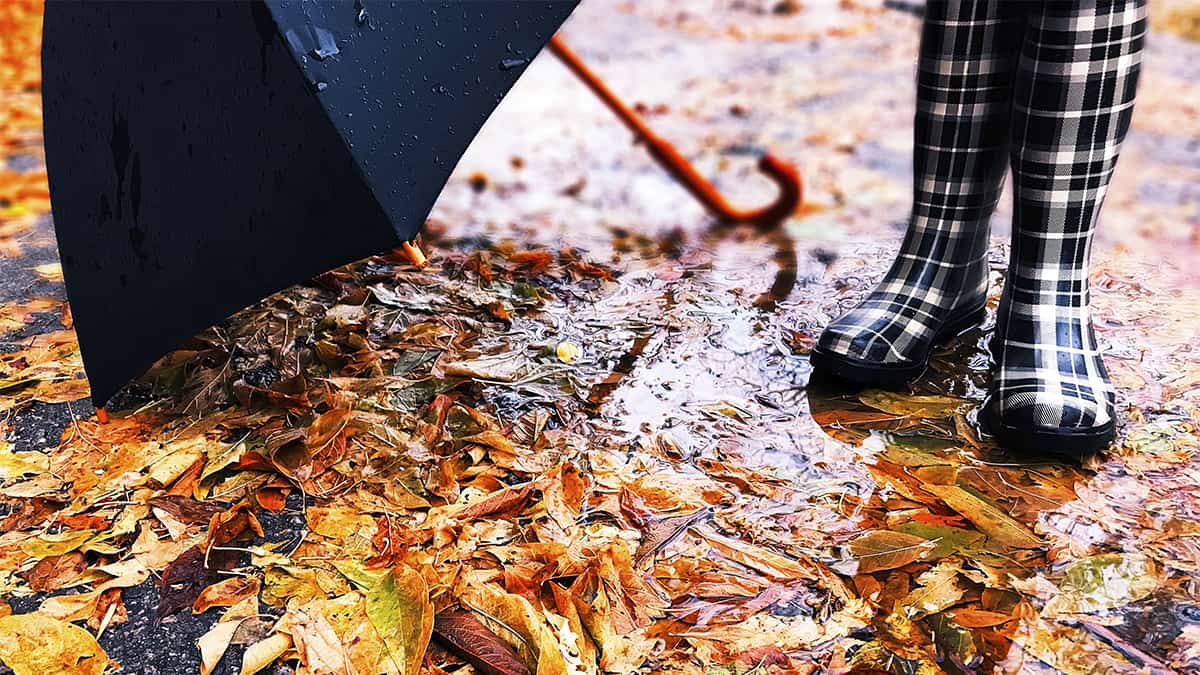Cooler weather is upon us as the remnants of summer are set to fade away, making way for autumn, which arrives in a few days’ time.
Just what the weather will look like for the season ahead can be difficult to predict, with Mother Nature likely to throw a few surprises into the mix as the days get shorter, but David Phillips, senior climatologist with Environment Canada, says we should expect warmer than normal temperatures over the next little while.
“I would think that the fall is probably going to be more mild than cold, so normal to warmer than normal is how I would hedge my bets about the fall. Now, that’s to say the next month, so that would be mid-September to mid-October. Over the fall period, though, the period that we’re looking at for three months – the rest of September, October and into November, so going right through to the end of November – we claim it’ll be milder than normal, so that’s why I hedge the bets. The next week, next month, might be normal to warmer,” said Phillips. “Now, of course, we’re not talking about July warmth, we’re talking about, September, October, November warm, so everything is relative to that particular season, but overall we think temperatures will be one or two degrees warmer than normal.”
He says the current weather patterns we are seeing include days both above and below normal, but the next week or so will bring back summer for another burst as we get back into temperatures reminiscent of late August.
“In the fall, and then by next week will be my gosh… it’s called an Aboriginal summer, I mean we’ll have had some warmer conditions next week, it’ll feel more like early-September, late-August warm, warm … not even sweater weather. So I think there is still some heat to summer left in the air and but it doesn’t mean any of these little surprises to get from a frost, or snow,” he added.
Phillips says this fall will also bring with it a “spectacular colour change season.”
“I say that because there are two conditions that drive that viewing [of the change in leaf colour] weather. How does it look to go and view the colour change (with regards to the weather)? But also it tells you about the health of the trees going into the colour-change season, and the trees have actually been benefited by the summer we saw: they like it warm, but not too warm. They like hot days but they also like a good amount of precipitation, so they haven’t been really stressed like they would be in a hot, dry summer – this one has been all warm and near normal amounts of precipitation type of thing. It’s been there’s been a nice balance of the temperature and the precipitation.”
He says the weather is set to be milder for those who want to take in the magic of fall and see the leaves change colour. Phillips predicts it may be drier than normal, but says the weather is very fickle that time of the year and plans cannot be made on Monday for the next Saturday.
Phillips also gave a brief view on what the winter might look like on a year that has already come with so much suspense. La Nina is set to serve up what could be a messy winter, bringing more snow than we saw last year. Because the lakes were the warmest they’ve ever been this year, the expectations are that we could be seeing lake-effect snow in the Woolwich and Wellesley areas.
While the weather may not be what everyone wants, this year it will be different because of COVID-19, he added.
“A lot of people in Ontario go south for the holidays in the winter. So, it would be possible we’re going to be more hibernating then migrating. And I think that it’s going to be a challenge for people, no matter what the winter is because of the pandemic. It’s a different way, we have never, never had a winter like this. Maybe very typical winter, but how we react to it, how we handle the impact that it’s going to have, the effect of the fallout from the winter will be different because we’re living in different times,” said Phillips. “From a personal point of view, more challenging. So, some of the impacts of slippery roads and buried in snow will have a different consequence, because of what is happening to us. And so it might make the seasons longer because we’re more cabin fever than not, we can’t get out and about you see. Winter is who we are, I mean it’s the longest season; sometimes it can be the toughest season.”









